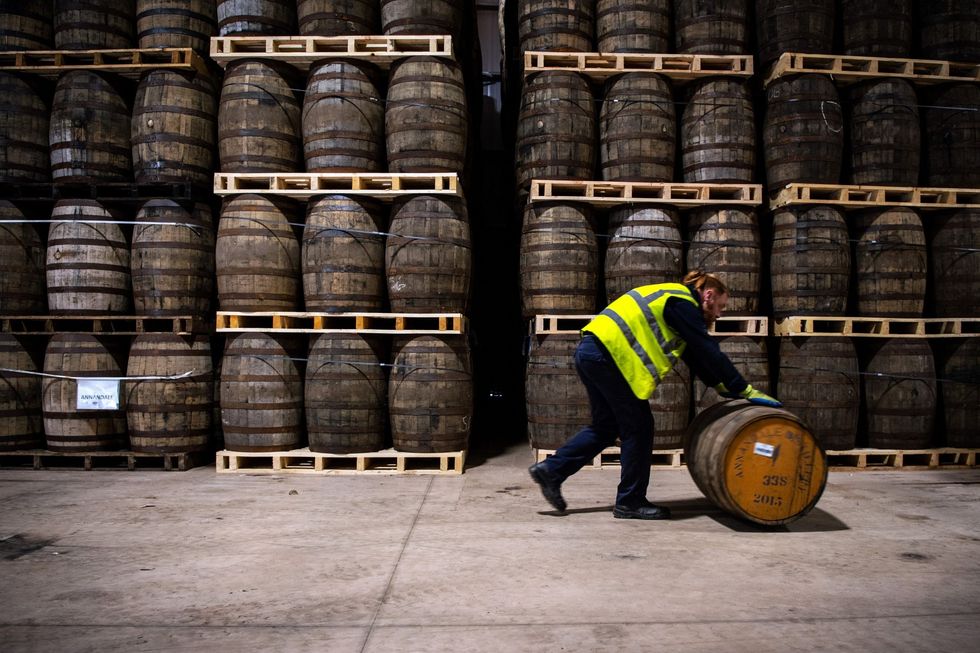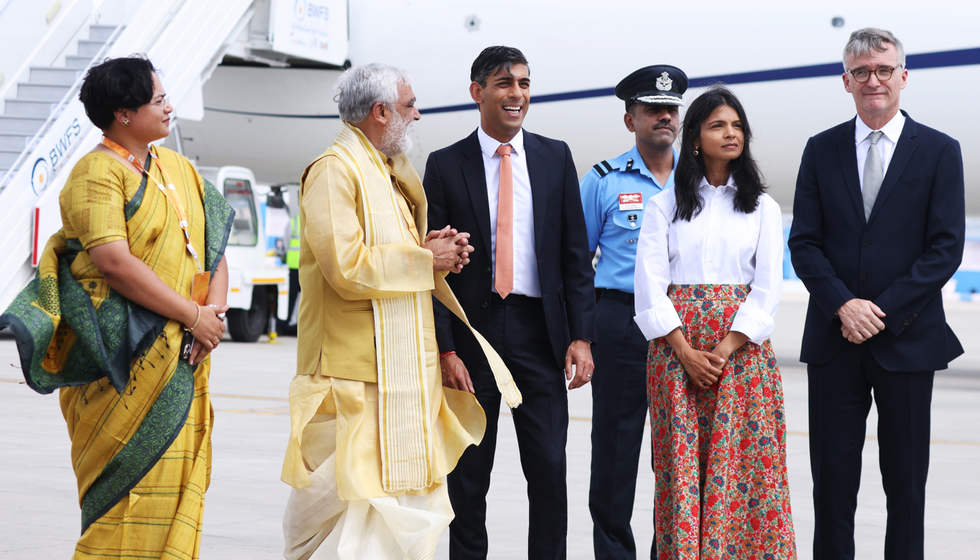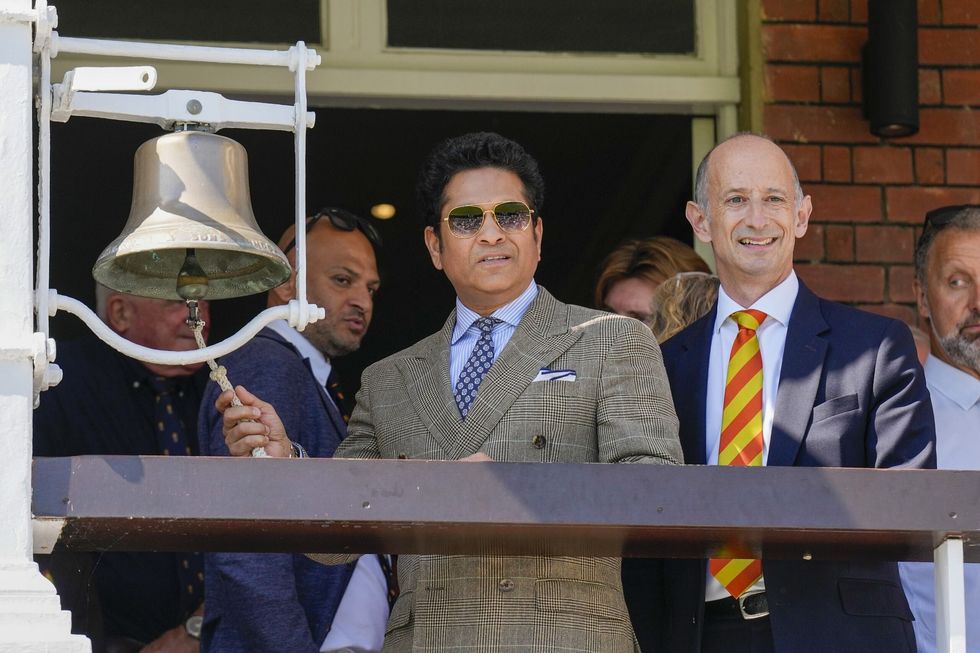THE outlook is very bright for British Indian businessmen (and women) if a UK-India Free Trade Agreement is signed – as prime ministers Rishi Sunak and Narendra Modi hope to do by the end of 2023 or at the latest by early next year.
A senior Indian government source has confided in Eastern Eye: “If Labour wins the next election in Britain, we expect the FTA to be put on the backburner.”
This is not necessarily because a Labour government would be against the FTA, but because India will not be a priority for a new administration under Sir Keir Starmer.
The British prime minister’s officials have informed people dropping into 10, Downing Street in recent days that Sunak is keen to fly to India for Diwali. “It’s to watch cricket,” they have been told.
This remark is not to be taken seriously, not least because no one can predict whether England will progress into the semi-final stages of the World Cup currently under way.
The real reason is that it would be a coup for Sunak if he can show he has managed to pull off an FTA with India this side of the general election.
Indian government officials have been briefing local journalists along the lines that Sunak “is set to make an official visit to India for four days at the end of this month, likely starting October 28”.
They add that that “the British and Indian Prime Ministers may attempt to make important decisions on key issues hindering the India-UK FTA to prevent indefinite delays”.
One source was quoted as saying: “The free trade deal is stuck on just a handful of issues where a decision would now have to be a political call.
“If the two PMs decide to settle the matter during Sunak’s visit, we could have the FTA immediately. Otherwise, it will go back to the negotiators and it can be anyone’s guess how long it would take to get resolved. One must also not forget next year’s elections in both countries.”
The Britain meets India Tracker 2023, just published by Grant Thornton Bharat and released at the British High Commission in Delhi, shows the UK economy can be transformed if it can ride piggyback on “India’s stellar growth”.
The report said “the number of UK companies operating in India has increased, up from 618 in 2022 to 635 in 2023”.
It added: “The total turnover of these companies has also increased, up from £36bn in 2022 to £51bn in 2023.”
It gave much more detail in providing a remarkably optimistic picture: “147 of the 635 UK companies identified met the qualifying criteria to feature in the BMI Growth Tracker (achieving year-on-year revenue growth of at least 10 per cent), up from 58 in 2022. The 147 fastest growing UK companies in India achieved an average growth rate of 46 per cent in 2023, up from 36 per cent in 2022. This year, 11 UK companies operating in India achieved triple-digit turnover growth rates.”

The number of jobs created by British companies in India has gone up from 466,640 to 666,992 over a 12-month period. The amount of tax they paid has risen from £1.1bn to £1.9bn.
The top revenue earning subsidiary of a UK company in India is Vedanta Ltd whose chairman is Anil Agarwal.
What this means is that UK companies, headed by British Indians, “can get very rich, very quickly” by expanding their businesses in India. They don’t have to be told about India’s sustained growth, but their British colleagues are also waking up to India’s potential.
If an FTA is signed – and this still remains a big “if” – bilateral trade could go up many times.
According to the tracker, “the UK is considered to be one of India’s most important trading partners with a bilateral trade relationship worth over £35bn. The UK has also been a major investor in India with FDI (Foreign Direct Investment) inflows of £27.4bn between April 2000 and March 2023.
“One of the most important aspects of India’s engagement with the UK is the impending FTA. This agreement has the potential to further strengthen the bilateral partnership and boost economic prosperity on both sides of the India-UK corridor.”
Pallavi Joshi Bakhru, partner and India-UK corridor leader of Grant Thornton Bharat, commented: “India continues to increase its attraction as an investment destination for foreign companies.

“Recent research undertaken by Grant Thornton UK in June 2023 shows that over one-third (36 per cent) of UK business leaders are planning to invest more in growing internationally in the next six months, with 73 per cent of respondents identifying India as a focused international growth market.
“India is set to become the world’s third-largest economy by 2050, with a larger population than the US and EU combined.”
She said: “India continues to be a large and growing economy with a burgeoning consumer base, sizable skilled workforce, and government commitment to economic development. The anticipated FTA should further boost the relationship between the two countries and provide an excellent platform for further investment.”
She added: “I am confident the India-UK corridor will continue to witness significant growth and prosperity in the years to come. We are committed to supporting this growth and look forward to working with all stakeholders in the India-UK corridor to achieve their goals.”
Grant Thornton UK publishes the annual India meets Britain Tracker, which analyses the even more impressive performances of Indian companies in the UK. While Britain is India’s sixth biggest investor, India ranks second among countries investing in the UK.
Anuj Chande, the London-based head of the South Asia Business Group at Grant Thornton, told Eastern Eye: “As India becomes more and more important in the world stage, UK companies have also become more aware of the market opportunities in India.”
Anuj Chande
Compared with the 700,000 people in India employed by British companies – “that’s isn’t a huge number” – firms from India had created 110,000 in the UK, “which is a lot in the UK context”, remarked Chande.
The latter figure is expected to rise to 250,000 within a decade.
Chande said: “There are more Indian companies here – 954 - than there are UK companies – 635 – in India. Turnovers are similar - £51bn in India compared with £52bn in the UK.”
Areas in which there could be greater collaboration include science, innovation, and sustainability, defence, trade and “gender equality” (this is “expected to enhance opportunities for women in both countries to access the benefits of increased trade and employment”), people-to-people and healthcare.
The UK has a wide network of diplomatic missions and consulates in India – Delhi, Mumbai, Kolkata, Chennai, Hyderabad, Bangalore, Chandigarh, Ahmedabad and Goa.
Alex Ellis, the British High Commissioner in India, said: “With more than 900 Indian businesses operating in the UK and more than 600 UK businesses finding success in India, our dynamic business relationship supports more than half a million jobs across both countries.
“The UK is the largest investment destination for India in Europe. Indian investors choose the UK because of a fair and competitive tax structure, because of the size of the market as the 6th biggest economy in the world and because of our talent with 4 of the world’s top 10 universities.

“The UK is the best place to invest in tech in Europe: we are the third economy in the world with a £818bn tech sector; the UK is ranked as having the world’s fourth most innovative economy; and the UK has created more unicorns, privately held startup companies with a value of over £818m, than France and Germany combined.”
He stressed: “UK companies are also increasingly turning to India to sell their high-quality goods and services.
“India’s middle class is expected to double from 30 million people in 2019 to 60 million people in 2030, before reaching nearly 250 million in 2050.
“This group will drive India’s consumer spending in healthcare, education and premium products, creating enormous opportunities for UK firms selling high quality, iconic brands and products. The India-UK partnership is well and truly alive with opportunity.”






 (Photo credit: PTI)
(Photo credit: PTI)










 Kendrick Lamar and SZA commands the stage at Villa Park during his explosive opening setInstagram/
Kendrick Lamar and SZA commands the stage at Villa Park during his explosive opening setInstagram/
